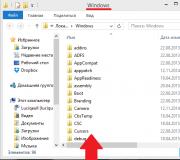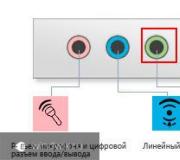Natalia Nikolaevna Kovaleva Information law of Russia: textbook.
2nd ed., revised. and additional – M.: 2002. – 512 p.
In the textbook prepared by the head of the Department of Legal Informatics of the Moscow State Law Academy, Professor V.A. Kopylov, based on the experience of teaching information law at Moscow State Law Academy, examined all the main issues of the curriculum related to the Introductory, General and Special parts of the course.
The appendices contain: course program; dictionary of terms used in information legislation acts; list of acts and norms of information legislation acts; recommended literature.
For undergraduates, graduate students and teachers of law schools where information law is studied. It will be useful for everyone who is interested in the problems of informatization.
Format: doc/zip
Size: 421 KB
/Download file
![]()
Format: pdf/zip
Size: 1.72 MB
/Download file
Table of contents
CHAPTER 1 INFORMATION SOCIETY AND LAW 8
1.1. The role of information in the life of the individual, society, and state. Information society. Formative stages 8
1.2. Charter of the Global information society(Okinawa) 10
1.3. State policy in the field of formation of the information society 13
1.4. Purpose of this textbook 13
CHAPTER 2 INFORMATION SPHERE AS A SPHERE OF INFORMATION CIRCULATION AND SPHERE OF LEGAL REGULATION 13
2.1. Information as the main object of the information sphere and legal system 13
2.1.1. Definition of “information” 13
2.1.2. Information in acts of current legislation 13
2.1.3. Classification of information according to the role it plays in the legal system 13
2.1.4. Classification of information by access to it 13
2.1.5. Legal features and properties of information 13
2.2. Information sphere model 13
2.2.1. Area of searching, receiving and consuming information 13
2.2.2. Area of creation and dissemination of original and derivative information 13
2.2.3. Formation area information resources, preparation of information products, provision information services 13
2.2.4. Scope of creation and application information systems, information technologies and their support 13
2.2.5. Area of creation and application of information security tools and mechanisms 13
GENERAL PART 13
CHAPTER 3 SUBJECT, METHOD AND SYSTEM OF INFORMATION LAW 13
3.1. The concept of information law. History of the formation of information law 13
3.2. Information rights and freedoms - the foundation of information law 13
3.3. Public relations regulated by information law 13
3.4. Information law methods 13
3.5. Principles of information law 13
3.6. Subjects of information law 13
3.7. System of information law, place of information law in the legal system 13
3.8. Information law as a science, as an academic discipline, as a system legal regulation public relations in information sphere 13
3.8.1. Information law as a science 13
3.8.2. Application of methods of legal informatics and legal cybernetics for the study of information law 13
3.8.3. Information law as an academic discipline 13
3.8.4. Information law as a system of norms regulating relations in the information sphere 13
CHAPTER 4 INFORMATION LEGAL RULES AND INFORMATION LEGAL RELATIONS 13
4.1. Information and legal norms. General characteristics 13
4.2. Concept, content, structure of information legal relationship 13
4.3. Classification of information legal relations 13
4.3.1. Information legal relations arising when searching, receiving and consuming information, information resources, information products, information services 13
4.3.2. Information legal relations arising in the production, transmission and dissemination of information, information resources, information products, information services 13
4.3.3. Information legal relations arising during the creation and use of information systems, their networks, and support tools 13
4.3.4. Information legal relations arising during the creation and use of means and mechanisms information security 13
CHAPTER 5 SOURCES OF INFORMATION LAW 13
5.1. Information legislation is the main source of information law 13
5.2. Information and legal norms of the Constitution Russian Federation 13
5.3. Acts and norms of the information legislation industry 13
5.4. Separate norms as part of regulatory legal acts of other industries 13
CHAPTER 6 RIGHT TO SEARCH, RECEIVE AND USE INFORMATION 13
6.1. Constitutional basis for searching, receiving and transmitting information 13
6.2. Main subjects of legal relations 13
6.3. The right to search and receive documented information from state information resources 13
CHAPTER 7. INFORMATION AS AN OBJECT OF INDEPENDENT CIRCULATION 13
7.1. Information Property Issues 13
7.2. Model of civil circulation of information 13
7.3. Subjects of information legal relations in civil circulation of information 13
CHAPTER 8 DOCUMENTED INFORMATION AS AN OBJECT OF INFORMATION LEGAL RELATIONS 13
8.1. Constitutional basis for the formation and use of information resources 13
8.2. State policy in the field of formation and use of information resources 13
8.3. Legal regime of documented information 13
8.4. Legal deposit of a document as a type of documented information 13
8.5. Documented information in international information exchange 13
CHAPTER 9 INFORMATION SUPPORT AS OBJECTS OF INFORMATION LEGAL RELATIONS 13
9.1. Legal regime of information systems, information technology and means of ensuring them 13
9.2. The procedure for the development and implementation of information systems, technologies and support tools 13
9.3. State policy in the field of creating information systems, information technologies and means of supporting them 13
9.5. Legal regulation of relations in the field of creation, operation and use of State automated system Russian Federation “Elections” 13
CHAPTER 10 LEGAL PROBLEMS OF INFORMATION SECURITY 13
10.1. Legal basis for protecting objects of information legal relations from threats in the information sphere 13
10.2. Legal protection interests of the individual, society, state from the threat of exposure to poor-quality information, from violation of the procedure for disseminating information 13
10.3. Legal protection of information, information resources and information systems from threats of unauthorized and unlawful influence by outsiders 13
10.4. Protection of rights and freedoms in the information sphere in the context of informatization 13
10.4. Protection of rights and freedoms in information. sphere in the conditions of informatization 13
10.5. Structure of legal regulation of relations in the field of information security 13
CHAPTER 11 LEGAL PROBLEMS OF THE INTERNET VIRTUAL ENVIRONMENT 13
11.1. Internet and the legal system 13
11.1.1. Internet like virtual environment 13
11.1.2. Legal aspects of the Internet 13
11.2. Features of information legal relations on the Internet 13
11.2.1. Area of implementation of the right to search, receive and consume information on the Internet 13
11.2.2. Areas of creation and distribution source documents, formation of information resources and provision of information products and information services on the Internet 13
11.2.3. The field of information technologies and means of providing them on the Internet 13
11.3. Main directions of legal regulation information relations on the Internet 13
SPECIAL PART 13
CHAPTER 12 INFORMATIONAL ASPECTS OF INTELLECTUAL PROPERTY 13
2.1. Main sources of the institute of intellectual property 13
12.2. Peculiarities of regulation of information relations by the copyright institute 13
12.2.1. Legal regulation of information relations in the production and dissemination of works of science, literature and art 13
12.2.2. Legal regulation of information relations in the production and distribution of computer programs and databases 13
12.2.3. Legal regulation of information relations in the production and distribution of topologies integrated circuits 13
12.3. Peculiarities of regulation of information relations by the Institute of Patent Law 13
12.4. Peculiarities of regulation of information relations by the Institute of Know-How 13
CHAPTER 13 LEGAL REGULATION OF INFORMATION RELATIONS IN THE FIELD OF MASS INFORMATION 13
13.1. Constitutional guarantees of freedom mass media 13
13.2. Features of regulation of information relations arising in the production, distribution and consumption of mass information in the Russian Federation 13
13.2.1. Ensuring guarantees of freedom of media 13
13.2.2. Organization of media activities 13
13.2.3. Dissemination of mass information 13
13.2.4. Relations of the media with citizens and organizations 13
13.2.5. Legal status journalist 13
13.2.6. Interstate cooperation in the field of mass media 13
13.2.7. Responsibility for violation of legislation on the media 13
13.3. State support for the media 13
13.4. Coverage of the activities of government bodies by the media 13
13.5. On publication of normative legal acts in the media 13
13.6. Advertisement 13
13.7. Features of regulation of information relations arising in the activities of the printed press and electronic means media 13
13.8. Media and Internet 13
13.9. Experience in regulating information relations arising in the production and dissemination of mass information abroad 13
13.10. Features of legal regulation of information relations in the field of mass media in the USA 13
13.10.1. Freedom of expression 13
13.10.2. Defamation 13
13.10.3. Rights and obligations of the media from the standpoint of state (national) security 13
13.10.4. Protection of information sources 13
13.10.5. Issues of state control and licensing of mass media 13
CHAPTER 14 LEGAL REGULATION OF INFORMATION RELATIONS IN THE FIELD OF LIBRARY 13
14.1. Features of information legal relations arising in the production, distribution and consumption of library information 13
14.2. Objects and subjects of legal relations of the Institute of Library Science 13
14.3. Rights of citizens and other subjects in the field of librarianship. The right of citizens to library services. 13
14.4. Responsibilities of the state in the field of librarianship 13
14.5. Special conditions preservation and use of the cultural heritage of the peoples of the Russian Federation in the field of librarianship 13
14.6. Organization of interaction between libraries 13
14.7. Economic aspects of librarianship 13
14.8. Copyright in the activities of libraries 13
CHAPTER 15 LEGAL REGULATION OF INFORMATION RELATIONS IN THE ARCHIVES 13
15.1. Features of information legal relations arising during the formation of archives, distribution and consumption archival information 13
15.2. Objects and subjects of legal relations in the field of archival affairs and archives 13
15.3. Legal regime of archives 13
15.4. Public administration archival affairs in the Russian Federation 13
15.5. Storage, acquisition and accounting of archival funds 13
15.6. Procedure for access to Archival funds and use of archival documents 13
15.7. Responsibility for violation of legislation on the Archival Fund of the Russian Federation and archives 13
15.8. International cooperation in the field of archiving 13
CHAPTER 16 LEGAL REGULATION OF INFORMATION RELATIONS IN THE FIELD OF STATE SECRETS 13
16.1. Features of information legal relations arising in the production, transmission and consumption of information constituting a state secret 13
16.2. Subjects and objects of information legal relations in the field of state secrets 13
16.3. Lists of information constituting state secrets and information that cannot be classified as state secrets 13
16.4. Classification of information as state secrets and their classification 13
16.5. Property issues in connection with information constituting a state secret 13
16.6. Declassification of information and its media 13
16.7. Disposal of information constituting state secrets 13
16.8. Protection of state secrets 13
16.9. Control and supervision of ensuring the protection of state secrets 13
CHAPTER 17 LEGAL REGULATION OF INFORMATION RELATIONS IN THE FIELD OF TRADE SECRETS 13
17.1. Features of information legal relations arising during the production, transmission and consumption of information that constitutes trade secret
13
17.2. Subjects and objects of information legal relations 13
17.3. Legal regime of trade secrets 13
17.4. Protection of trade secrets in labor relations 13
17.5. Rights and obligations of state authorities, other state bodies and local governments in relation to trade secrets 13
17.6. Protection of rights to trade secrets 13
CHAPTER 18 LEGAL REGULATION OF INFORMATION RELATIONS IN THE FIELD OF PERSONAL DATA 13
18.1. Features of information legal relations arising during the production, transfer and consumption of personal data 13
18.2. Subjects and objects of information legal relations 13
18.3. Legal basis working with personal data 13
18.4. Rights of the subject of personal data 13
18.5. Rights and obligations of the holder (possessor) for working with personal data arrays 13
18.6. Government regulation working with personal data 13
18.7. Commissioner for the Rights of Personal Data Subjects 13
Appendix DICTIONARY OF TERMS USED IN INFORMATION LEGISLATION ACTS 13
RECOMMENDED READING 13
"N. N. Kovaleva Information Law of Russia”: Dashkov and Co.; Moscow; 2008
ISBN 978‑5‑394‑00086‑7
Annotation
The textbook reveals the concepts of information, information law and information legal relations in modern society, gives characteristics of electronic document management, and identifies the features of legal regulation of the Internet.
Considerable attention is paid to the problems of protecting confidential information, information security of individuals, society and the state, as well as issues of legal regulation of intellectual property rights to information products.
Intended for students, undergraduates studying in the field of "Jurisprudence", as well as for everyone interested in this problem.
Kovaleva Natalia Nikolaevna Information law of Russia Abbreviations
Agroindustrial complex of the Russian Federation– Arbitration Procedural Code of the Russian Federation
BC RF– Budget Code of the Russian Federation
Civil Code of the Russian Federation – Civil code RF
Code of Civil Procedure of the Russian Federation– Civil Procedure Code of the Russian Federation
Code of Administrative Offenses of the Russian Federation– Code of the Russian Federation on Administrative Offenses
Minimum wage– minimum wage
RF– Russian Federation
NW RF– Collection of legislation of the Russian Federation
Labor Code of the Russian Federation– Labor Code of the Russian Federation
TMK RF– Customs Code of the Russian Federation
PEC of the Russian Federation– Criminal Executive Code of the Russian Federation
Criminal Code of the Russian Federation– Criminal Code of the Russian Federation
Code of Criminal Procedure of the Russian Federation– Criminal Procedure Code of the Russian Federation
Federal Law– Federal Law
FKZ– Federal Constitutional Law
Preface
High information technologies literally permeate our society. In the context of the development of a market economy, they acquire special importance, since they allow the state to be managed not by administrative methods, but by socially oriented ones; they are also designed to reflect the balance of interests existing in society.
Mandatory prerequisites for building a rule of law state, creating a democratic and effective system for managing the affairs of the country, forming an advanced socially oriented economy, the rise of the nation, education, and culture are information potential that meets the most stringent standards of scientific and technological progress. High intellectual technologies in the field of informatization are turning into a strong factor that actively influences the development of mankind. The proper state of the information business increases the level of legal protection of a person. New technologies contribute to the expansion of forward and backward connections between the state and civil society.
Informatization itself is neutral, but it creates favorable conditions for carrying out structural government reforms. The expansion of the scope of information activities and the development of information technologies have led to the emergence of such a branch of legislation as information law. In many countries around the world, scientists are announcing the creation of an independent branch of law – information law. There is a need for a significant improvement in the state of affairs in the field of legal informatization. The state of information law reflects the role and place of informatization in the life of the country, the attitude towards it on the part of the authorities and the entire society. Being largely predetermined by the volume, nature and purpose of the entire information business, information law itself, in turn, affects the course of information processes.
In information law huge amount theoretical and practical unsolved problems. This is primarily due to the lack of specialists in this field. In-Depth Study information law is necessary not only for lawyers, but also for a huge army of civil servants. The modern state is actively disseminating the use of the latest technologies, which makes it possible to bring the state apparatus closer to specific people.
The terminology of information law is still largely undeveloped, although lately Scientists have done a lot of work in this direction. The investigation of information offenses and their prevention are impossible without unifying approaches in the theory of information law.
Present training manual is a relatively brief summary of scientific and theoretical material on all topics training course. Some topics are presented in the manual in very fragmentary ways. This is understandable. Firstly, modern information legislation includes a huge number of laws and other regulatory legal acts that are important and necessary for students to understand. This fact does not allow us to examine data and other information and legal institutions in detail in the textbook. Secondly, the authors of the textbook recommend for study the relevant regulatory legal acts, which contain rules governing relevant management relations. Careful familiarization with the texts of the recommended laws will allow students to comprehensively study educational material. Students are advised, based on general ideas about the essence of a particular topic, independently analyze the relevant federal laws, laws of constituent entities of the Russian Federation and other regulatory legal acts recommended for the study of information and legal institutions.
It is also necessary to remember that international law, international treaties and agreements, generally recognized norms and legal principles are part of the legal system of the Russian Federation. Therefore, information law must develop taking into account the requirements of international legal institutions, based on the principles of “internationalization” of the legal systems of the world.
This textbook is a relatively brief presentation of scientific and theoretical material on all topics of the training course. Some topics are presented in the manual in very fragmentary ways. This is understandable. Firstly, modern information legislation includes a huge number of laws and other regulatory legal acts that are important and necessary for students to understand. This fact does not allow a detailed examination of data and other information and legal institutions in the textbook. Secondly, the authors of the textbook recommend for study the relevant regulatory legal acts, which contain rules governing the relevant management relations. Careful familiarization with the texts of the recommended laws will allow students to comprehensively study the educational material. Students are recommended, based on general ideas about the essence of a particular topic, to independently analyze the relevant federal laws, laws of constituent entities of the Russian Federation and other regulatory legal acts recommended for the study of information and legal institutions
Section 1. GENERAL PROVISIONS
Chapter 1. INFORMATION LAW AS A BRANCH OF LAW
Chapter 2. INFORMATION AND LEGAL STANDARDS AND RELATIONS. SYSTEM AND SOURCES OF INFORMATION LAW
Chapter 3. CONCEPT AND TYPES OF SUBJECTS OF INFORMATION RIGHT
Section 2. STATE REGULATION OF THE INFORMATION SPHERE
Chapter 4. SYSTEM OF PUBLIC AUTHORITIES REGULATING THE INFORMATION SPHERE
Chapter 5. LEGAL REGIMES OF INFORMATION RESOURCES
Chapter 6. LEGAL REGULATION, CREATION AND APPLICATION OF INFORMATION TECHNOLOGY
Chapter 7. LEGAL REGULATION OF INFORMATION SYSTEMS
Chapter 8. FEATURES OF LEGAL REGULATION OF THE INTERNET
Chapter 9. LEGAL REGULATION OF INFORMATION RESOURCES
Chapter 10. ELECTRONIC DOCUMENT
Chapter 11. RIGHTS OF CITIZENS IN THE INFORMATION SPHERE
Chapter 12. LEGAL REGULATION OF MASS MEDIA
Chapter 13. INFORMATION MARKET
Section 3. INFORMATION SECURITY
Chapter 14. GENERAL CHARACTERISTICS OF INFORMATION SECURITY
Chapter 15. PERSONAL INFORMATION SECURITY
Chapter 16. INFORMATION SECURITY OF SOCIETY



